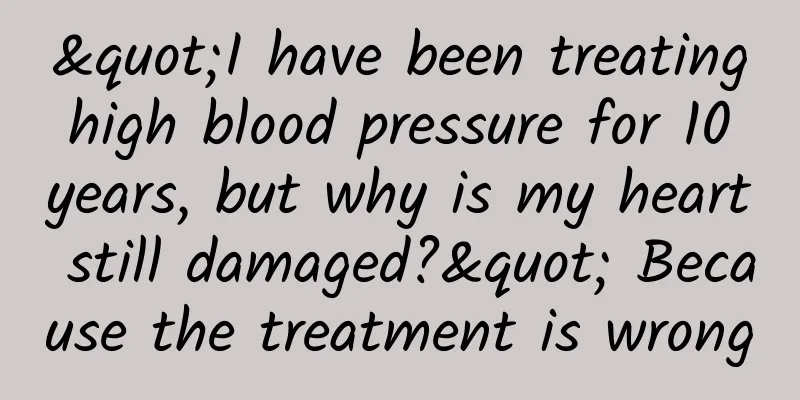Store enough calcium before the age of 30

|
Author: Cui Yihui, registered dietitian, master of medicine Reviewer: Wang Junbo, Associate Professor and Doctoral Supervisor, Peking University Health Science Center To see how important calcium is, just look at the summary in the figure below. Figure 1 Copyright image from the gallery, no permission to reprint Calcium is the most abundant mineral element in the human body, and the normal adult body contains 1000-1200 g of calcium. 99% of the calcium in the body is distributed in bones and teeth (commonly known as "bone calcium", i.e. "calcium store"), and the remaining 1% is distributed in soft tissues, extracellular fluid and blood (commonly known as "blood calcium", i.e. "miscible calcium pool"). Except for the first item listed in Figure 1, the rest of the functions of calcium are completed by the calcium in the 1% "miscible calcium pool". If someone asks "Which is more important, bone calcium or blood calcium?" in the future, you can answer loudly: "Both are important!" Figure 2: Copyright image from the gallery, no permission to reprint) So, how should such an important nutrient be supplemented in the right way? In fact, the method of calcium supplementation is like saving money. The calcium intake from food every day is equivalent to the money earned from work every day. Blood calcium is equivalent to the "pocket money" in your pocket, and bone calcium is equivalent to the "deposit" in the bank. The daily "calcium" income must first ensure the "pocket money" (blood calcium has too many tasks every day and must be guaranteed not to be lacking). When there is a surplus of calcium, it will be deposited in the "bank (calcium bank)". When there is no surplus calcium or even the income is not enough for the need of "pocket money", the brain will command the hormones in the body to automatically adjust and move "calcium" from the "bank (calcium bank)" to the blood calcium. The "calcium" in the calcium bank will not accumulate more and more with age. The amount of bone calcium in the human body reaches its "peak" at the age of 25 to 30, and then decreases with age. Only when you earn more money and save more money while you are young can you have enough money to "have a pension and spend in old age". The same principle applies to calcium supplementation, especially for women. They have to go through special periods such as childbearing, lactation, and menopause. They should supplement and store calcium seriously while they are young. Otherwise, calcium deficiency in older age will lead to a decline in quality of life, such as back pain, hunchback, osteoporosis, habitual fractures, insomnia, hair loss, etc. After the age of 65, women may lose 35% to 50% of their bone calcium, while men may lose 30% to 36%. This long-lasting "negative calcium balance" and the "income exceeds expenditure" situation will accompany one's life until the end of life. This long process of calcium loss leads to abnormal calcium distribution in the human body. Calcium deficiency reduces calcium in bones, while calcium in blood vessels and brain increases, leading to arteriosclerosis, Alzheimer's disease, etc. ●The critical period for calcium supplementation in women The daily calcium requirement for healthy adults (18 to 50 years old) is 800 mg. At the same time, women have three critical periods for calcium supplementation. ❖ Pregnancy: During the second and third trimesters of pregnancy, the body’s demand for calcium increases, and an additional 200 mg of calcium should be supplemented daily, that is, 1000 mg of calcium should be supplemented daily. ❖Lactation period: Supplement 1000 mg of calcium every day to ensure adequate calcium content in breast milk. ❖Menopause: Women over 50 years old, especially those who have entered menopause, should take 1000 mg of calcium every day to prevent osteoporosis. For women to love themselves well is definitely a major task that they must do throughout their lives. You might as well start from today and set a small goal to start calcium supplementation as early as possible and store enough calcium before the age of 30. ●How to supplement calcium? ❖Milk and dairy products are high-quality sources of calcium. They are not only rich in calcium, but also have a high absorption rate. Every 100 ml of milk contains about 100 mg of calcium. One bag of milk (about 250 ml) a day is beneficial for women of any age. ❖Soy products are also rich in calcium. Every 500 ml of soy milk contains 120 mg of calcium, and 150 g of tofu contains 500 mg of calcium. For people who don’t like to drink milk, drinking soy milk and eating tofu are also good ways to supplement calcium. ❖ Seafood (such as fish, shrimp, and shellfish) is high in calcium. 25 g of dried shrimp contains 300 mg of calcium. It is recommended to add some dried shrimp to soup or dumpling fillings, which is also a good way to supplement calcium. Figure 3. Copyrighted image from the gallery. Reproduction is not authorized. In addition to taking calcium from food three times a day, you can also choose to take calcium-containing dietary supplements to supplement calcium. ➣When choosing calcium supplement health products, products with calcium carbonate as the main ingredient have high calcium content, relatively high absorption rate and good cost performance. ➣ When supplementing calcium, it is best to take calcium tablets with meals and in divided doses. ➣ Magnesium among minerals is a "fellow sufferer" of calcium. Supplementing both at the same time in a certain ratio will have a better effect. ➣ Calcium supplementation alone cannot completely ensure that bones are not calcium deficient. It also depends on whether there is enough vitamin D to help calcium deposit into the bones. If you cannot guarantee regular sun exposure, you need to supplement vitamin D while supplementing calcium. ➣ Calcium supplementation is more effective at night. Take a calcium tablet with dinner or drink a glass of hot milk before going to bed. This can not only supplement calcium but also help sleep. |
<<: The humble mint has a big effect
>>: Rehabilitation of cognitive dysfunction after stroke
Recommend
What are the requirements for shampoo for pregnant women?
Washing hair is something people do every day, bu...
Mastitis surgery scar
Whether it is during pregnancy or breastfeeding, ...
Can I swim on the fifth day of my period?
Swimming is prohibited during menstruation. Altho...
Menstruation is delayed for 8 days
In life, many people experience delayed menstruat...
Increased vaginal discharge and nipple pain are signs of pregnancy
The most common abnormal vaginal discharge proble...
How to make your period come faster
Although menstruation is a very troublesome thing...
How big is the fetus at eight weeks
The embryonic bud and fetal heart rate are the na...
How to comfort my girlfriend when she has her period
Many women feel uncomfortable during their menstr...
There are three reasons for abdominal effusion in women
Under normal circumstances, there is a small amou...
What causes bleeding of fetal membranes?
During pregnancy, a woman's body will undergo...
Yellow urine in early pregnancy
Because each woman's body has great individua...
You can use the pregnancy test stick 7 days after sex
Women usually cannot use pregnancy test sticks 7 ...
How to treat itching and swelling below
There are symptoms of itching and swelling down t...
What should you pay attention to when resuming diet after breast fibroid surgery?
Breast fibroids are a common disease among women....
Can I get pregnant if I have sex a week before my period?
You will not get pregnant if you have sex one wee...









